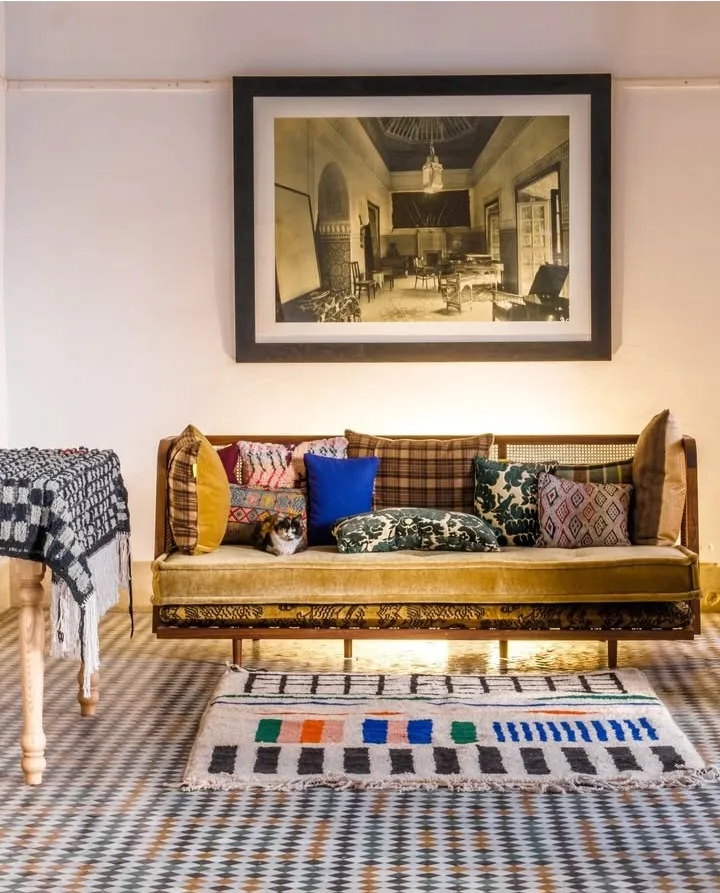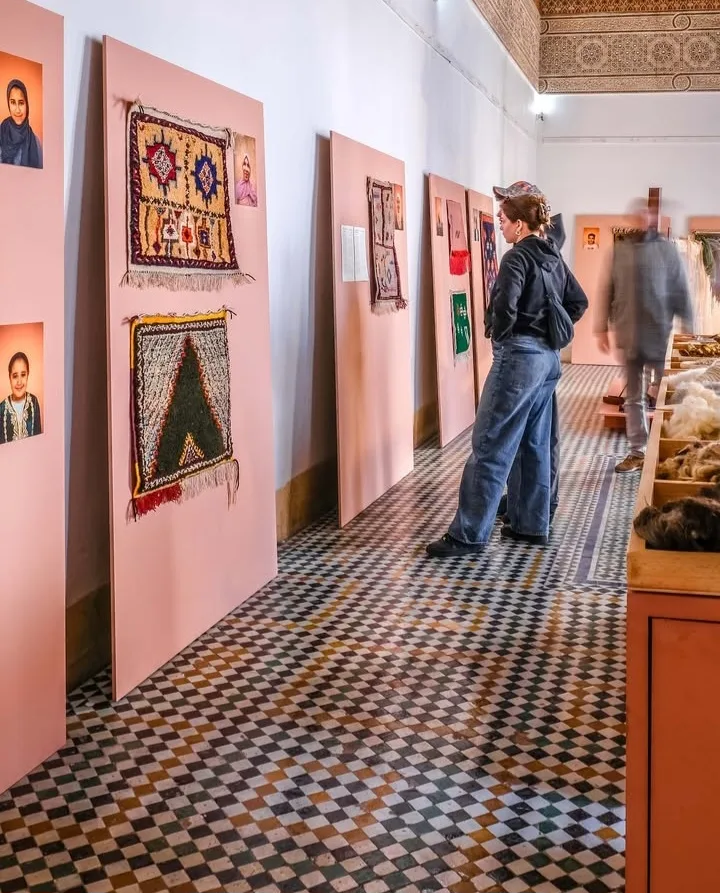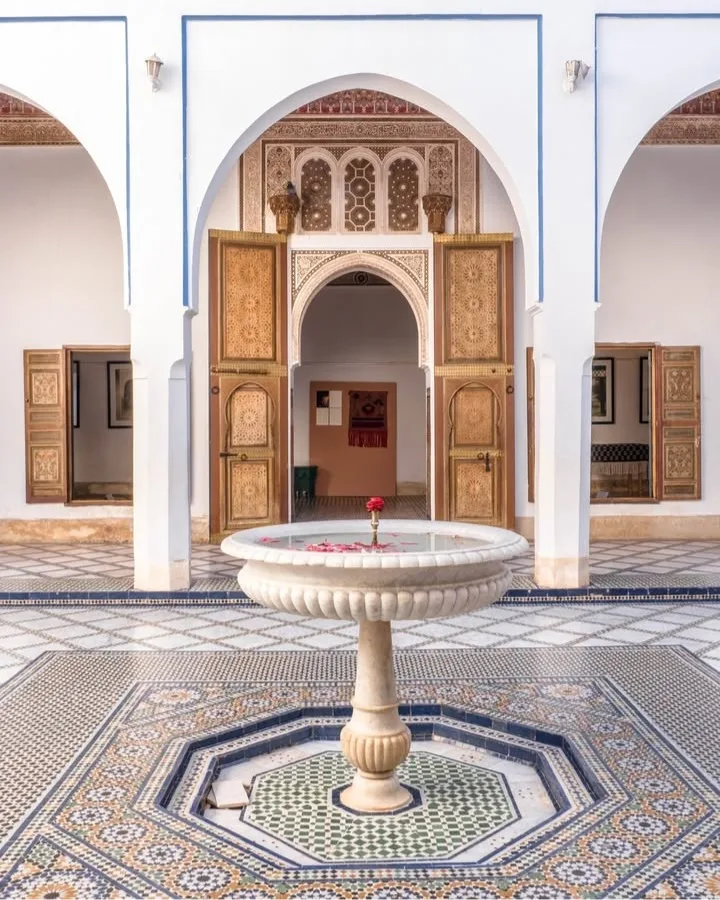Dutch-Moroccan designer, Mina Abouzahra, brings the weavers of Taznakht to Bahia Palace in Marrakech, blending tradition, technology as well as advocacy for fair trade. ‘The Soul of a Rug’ in collaboration with the Conservation of the Palais Bahia, was inaugurated during the 1-54 Contemporary African Art Fair Marrakech and offers an immersive experience celebrating Moroccan weaving traditions. At its core, ‘The Soul of a Rug’ is a tribute to craftswomen who have preserved this intricate art form for generations.
Featuring a 360-degree VR installation, visitors are transported to Taznakht, where they witness the weaving process and the artisans’ daily lives. Abouzahra’s work bridges tradition and contemporary design, raising awareness of fair trade and cultural sustainability. In this exhibition, Mina Abouzahra shares insights on her inspiration, the role of technology in cultural preservation, and the importance of supporting female artisans in Morocco.

According to Abouzahra the inspiration for ‘The Soul of a Rug’ comes from her bicultural identity, blending her Dutch upbringing with her Moroccan heritage. Growing up in these two worlds ignited a passion and necessity for bridging cultural divides through design and craftsmanship in the artist. Through this exhibition, she aims to highlight the rich traditions of Taznakht’s weaving women, showcasing their artistry and resilience while fostering a deeper appreciation for their vital role in the carpet industry.
Through technology and VR, particularly immersive VR, Aboubacar revolutionises cultural preservation by allowing audiences to engage more deeply with traditions, this while enabling audiences to experience the weaving process and the stories of artisans firsthand, fostering a genuine connection. This approach not only preserves cultural heritage but educates and inspires future generations to appreciate and continue these crafts, hopefully leading to more conscious consumption of rugs.

According to the arrist, the economic challenges faced by Taznakht’s weavers can be alleviated by focusing on empowering the weavers through education and training, ensuring they receive fair wages for their craft. Initiatives like direct market access and collaborations with designers can enhance their visibility and economic stability, fostering a sustainable future for these artisans and their communities. When asked about more steps to take towards making this a reality, the artist said, “I would advocate for government regulations regarding minimum wages and the protection of the craft. Currently, we’re seeing Berber rugs being produced cheaply in India and China. Like Champagne and Port, a rug should not simply be labelled Berber without meeting specific standards.”
Abouzahra’s design philosophy merges Moroccan craftsmanship with Dutch design aesthetics and balances innovation with tradition by deeply respecting the heritage of Moroccan weaving while exploring contemporary design elements. Collaborating closely with artisans ensures modern aesthetics are created using traditional techniques while preserving cultural integrity. This approach allows the artist to celebrate both worlds harmoniously in her designs.
Additionally, the artist spent almost a year at the cooperative, weaving her own rug and understanding the craft on a deeper level, experiencing firsthand the lives of the weavers she works with as well as their work dynamics. The Soul of a Rug’ aims to deepen the appreciation for Berber rug-making by highlighting its cultural significance and the artisans behind the craft.

By sharing the weavers’ stories and showcasing their skills, the artist through the exhibition aims to inspire audiences to recognise the value of handmade artistry, fostering a tremendous respect for cultural heritage in Morocco and worldwide.
Further, Aboubacar hopes to encourage people to consume more consciously, understanding that a rug is not a disposable product but a piece of culture, love and history. The exhibition is on view at Bahia Palace until the 31st of May 2025. For more information, please visit Mina Abouzahra here.


